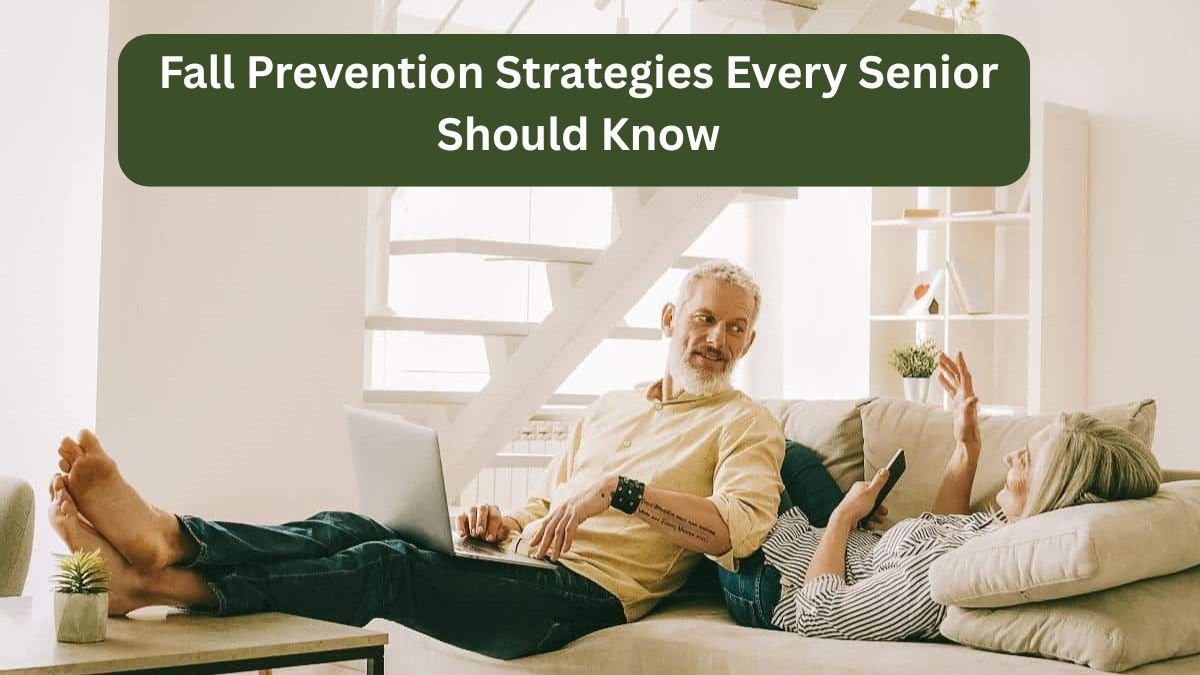In old age, safety is as important as physical health. Falls not only cause injuries for seniors, but can also sometimes signal serious health problems. Therefore, adopting fall prevention strategies in a timely manner not only improves quality of life but also maintains independence and self-reliance. In this article, we bring you 10 important strategies every senior should know.
Make the Home Safe: Prevent Slips and Obstructions
Making indoor and outdoor spaces safe is the first and most important fall prevention strategy. Loose wires, frozen objects, or wet floors can cause sudden slips.
Always keep floors clean and dry.
Remove obstacles such as shoes, toys, or small furniture items.
Use non-slip floor mats.
Install handgrips or handrails in areas like the kitchen and bathroom.
Small changes like these play a big role in making your home fall-safe.
Regular exercise and balance exercises
Lack of balance and muscle weakness are the leading causes of falls in seniors. Daily light exercise and balance exercises strengthen muscles and reduce the risk of falls.
Do yoga, stretching, and light walks.
Practice techniques like T-stands, heel-toe walks, and single-leg stands to improve balance.
Seek guidance from a physiotherapist, especially if you have had a previous injury.
Exercise is beneficial not only for physical health but also for mental health.
Get regular vision and hearing checkups
Frequent falls can lead to vision and hearing loss. Blurred vision or hearing loss can make it difficult to recognize even minor obstacles.
Get your eyes and ears checked at least once a year.
Use glasses or hearing aids, if necessary.
Ensure adequate lighting, especially in bathrooms, hallways, and stairs.
Clear vision and hearing allow for accurate perception of surrounding conditions and reduce the risk of falls.
Choosing the Right Shoes and Flooring
Both shoes and flooring affect the risk of falls.
Always wear shoes with sturdy, comfortable, and non-slip soles.
Avoid high heels or slippery shoes.
Use slip-resistant pads on carpets or floors.
Wearing the right shoes and ensuring safe flooring improves balance and mobility around the home.
Proper Medication Management
Some medications, such as blood pressure medications or sleeping pills, can affect blood pressure or balance.
Regularly monitor your medication intake.
Ask your doctor which medications may increase your risk of falls.
If you experience dizziness or weakness, consult your doctor.
Balanced medication use helps keep seniors safe and healthy.
Caution on Stairs and Getting Up and Down
Stairs are the most common place for falls.
Always keep handrails on stairs.
Stairs and access points should be adequately lit.
Take care when climbing and descending stairs; never run.
Small precautionary steps can prevent major accidents.
Nutrition and Bone Strength
Weak bones and muscles can increase the risk of falls.
Eat a diet rich in calcium and vitamin D.
Include milk, yogurt, green vegetables, nuts, and fish in your diet.
Use supplements as directed by your doctor.
Strong bones and muscle strength significantly reduce the risk of falls.
Use of Technological Devices
In today’s world, technology can help prevent falls.
Install motion sensor lights in your home.
Employ emergency buttons or personal alert devices.
Monitor your activities with a smartwatch or health tracking device.
These devices can provide timely assistance and prompt emergency help.
Mental Health and Alertness
Psychological conditions also affect the risk of falls.
Anxiety, depression, or lack of sleep can reduce balance and alertness.
Participate in regular social activities and stay mentally active.
Practice meditation and mindfulness.
Taking care of mental health not only reduces the risk of falls but also improves quality of life.
Regular Health Checkups and Professional Support
The last, but most important step is to get regular health checkups and seek professional help.
Get regular balance and physical health checkups from a doctor.
Seek advice from physiotherapists and geriatric specialists.
Seek immediate medical attention after any injury or fall.
Such professional guidance can prevent serious injuries and future falls.
Conclusion
Fall prevention is an important responsibility not only for seniors but also for their families and caregivers. By adopting the 10 strategies above, you can not only stay safe but also make your life more independent and active. Small precautionary steps like making your home safe, regular exercise, nutrition, and technological support can make life better and less risky.
